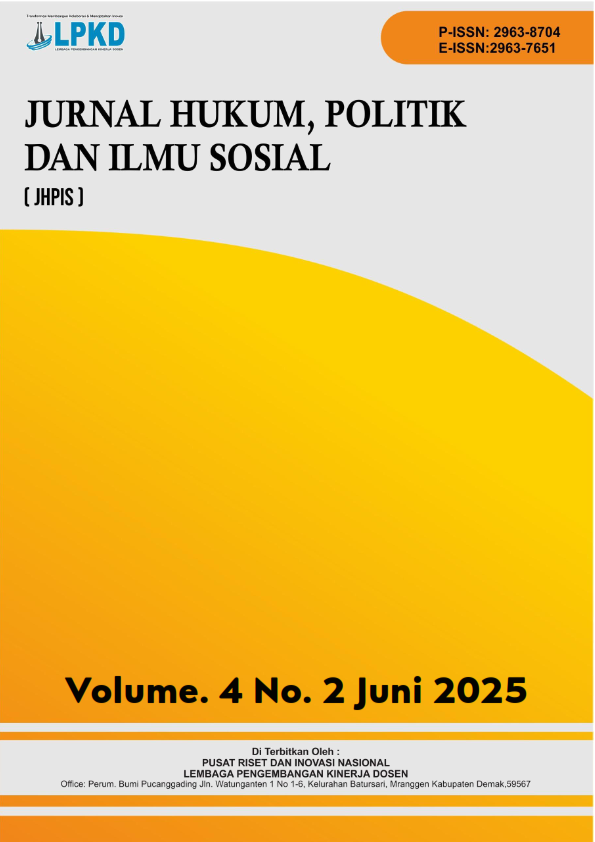Peran Arbitrase dalam Penyeleseaian Sengketa di Luar Pengadilan Menurut Undang-Undang No. 30 Tahun 1999
DOI:
https://doi.org/10.55606/jhpis.v3i3.3940Keywords:
Arbitre, Resolution, lawAbstract
Apart from regulating the use of arbitration, Law Number 30 of 1999 concerning Arbitration and Alternative Conflict Resolution encourages business actors to examine alternative conflict resolution. Arbitration is a method of resolving a civil settlement outside of general court which is based on an arbitration agreement signed between the parties. According to Law Number 30 of 1999, alternative recovery methods include mediation, negotiation, consultation, expert review and conciliation. Arbitration comes from the Latin word arbitrare which means the power to resolve something based on discretion. The appointment of arbitration with discretion gives the impression that an arbitrator is someone who can reach a more reasonable conclusion regarding the settlement. This research method uses a descriptive analysis approach which uses factors that influence the advantages of arbitration and this data source is secondary, namely according to legal documents - Law number 30 of 1999 and related laws, as well as journals and books. The fact that the arbitrators are selected by both parties to the dispute and are experts in their fields indicates that they are informed about the issues at hand, which is one of the benefits of resolving conflicts outside the court system rather than through litigation. Second, settlement decisions are made behind closed doors, so that only a few parties know the main issues at issue. Specialization or expertise in case management gives clients confidence• Arbitration is a popular alternative in business settlements due to several key advantages. The closed process maintains confidentiality and avoids adverse publicity. Arbitration decisions are final and binding, and the process is faster and more predictable than court. Flexibility in selecting arbitrators and arbitration procedural rules also provides parties with greater control over the outcome of their settlements. Overall, arbitration achieves amicable resolutions, supports sustainable commercial relationships, and allows for resolution in a more efficient and effective manner
Downloads
References
Aulia, M. H. (2022). Penyelesaian Sengketa Bisnis Melalui Metode Arbitrase Sebagai Alternatif Penyelesaian Sengketa Bisnis Di Luar Pengadilan Menurut Undang-Undang Nomor 30 Tahun 1999 Tentang Arbitrase Dan Alternatif Penyelesaian Sengketa. Jurnal Ilmiah Wahana Pendidikan, 8(24), 506-510.
Sari, I. (2019). Keunggulan Arbitrase Sebagai Forum Penyelesaian Sengketa Di Luar Pengadilan. Jurnal Ilmiah Hukum Dirgantara, 9(2).
Tampubolon, W. S. (2019). Peranan Seorang Arbiter Dalam Penyelesaian Sengketa Melalui Arbitrase. Jurnal Ilmiah Advokasi, 7(1), 21-30.
Downloads
Published
How to Cite
Issue
Section
License
Copyright (c) 2024 JURNAL HUKUM, POLITIK DAN ILMU SOSIAL

This work is licensed under a Creative Commons Attribution-ShareAlike 4.0 International License.








